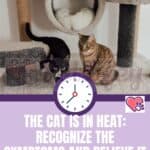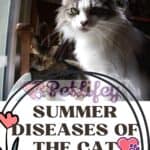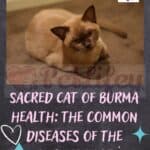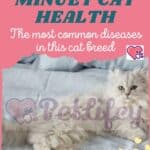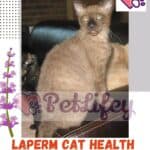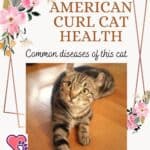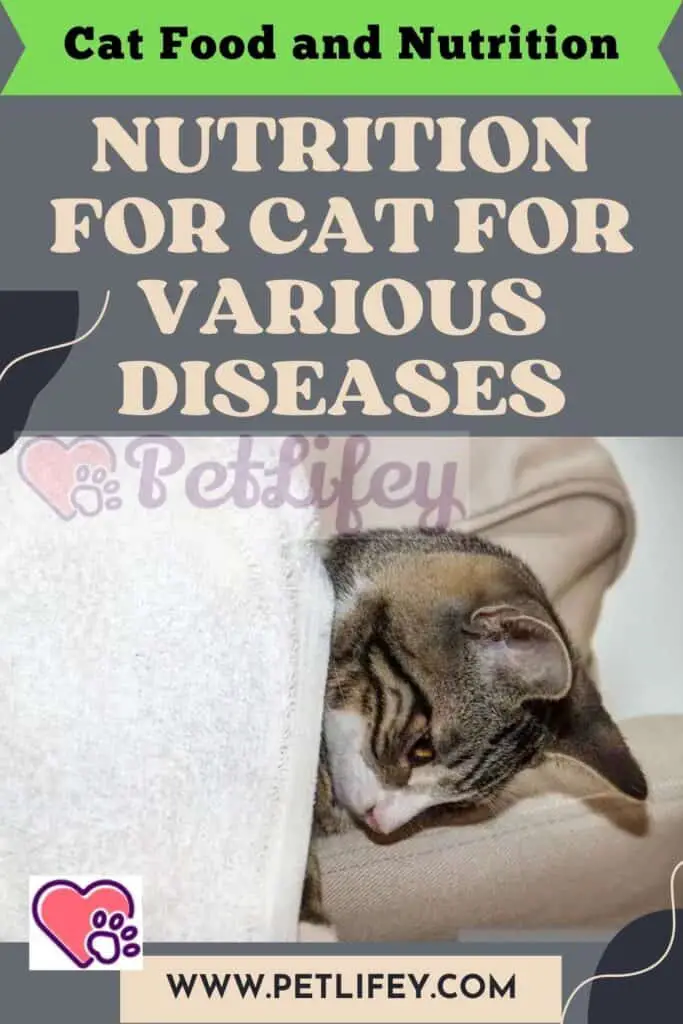
Most cat diseases can be treated with the right, healthy and appropriate foods. Let’s find out the cat diseases to be treated with food.
To alleviate your cat’s health problems, there are therapeutic foods that will help treat food allergies and intolerances, diabetes, osteoarthritis, heart, kidney, dermatological, gastrointestinal and obesity problems. There are very common diseases in cats, for which we can act by changing their eating habits. Nothing so overwhelming, as always taking care of our animal will be enough, but let’s look specifically, which cat diseases to be treated with food.
List of the main cat diseases to be treated with food
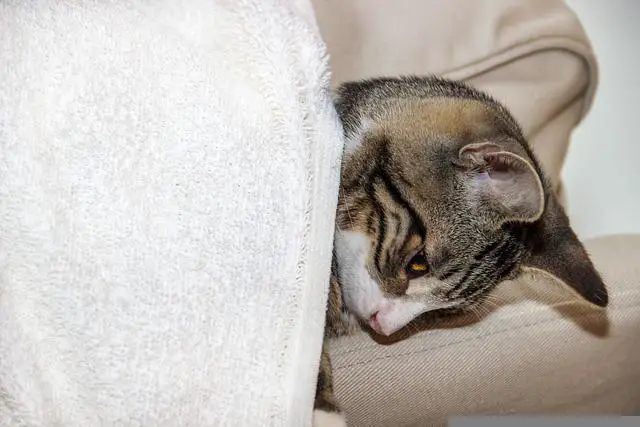
Below we list the 10 most common diseases:
- Kidney failure
- Hyperthyroidism
- Diabetes mellitus
- Allergies
- Inflammatory bowel disease
- Lymphoma
- Feline lower urinary tract disease
- Cat cancer
- Urinary tract infection
- Feline otitis
The main feline diseases treatable with nutrition:
Among the many diseases, we can make a distinction for some, for which it is possible to intervene with food. The diseases to be treated with food, we will find specified below:
Hyperthyroidism
Almost no hormonal disease appears as frequently in cats as hyperfunction of the thyroid gland. The thyroid is a hormone gland found in the neck region below the larynx. As a hormone gland, the thyroid performs important and vital functions in the metabolism of animals and humans.
It is particularly responsible for training and iodine. These hormones affect all cells in the body and thus the entire metabolism. Deficiency or excess can therefore lead to severe and very different symptoms. Iodine is provided by the diet, there are low-iodine foods that are showing strong collaboration in controlling hyperthyroidism in many cats.
Diabetes mellitus
Diabetes mellitus in cats is characterized by a chronic increase in blood sugar levels. Diet (domestic or industrial) is essential. It aims to limit changes in blood glucose levels after meals. Keep the cat in normal weight and limit the risk of diabetes complications. It is necessary to control the carbohydrate intake and adapt the cat to the supply of energy it needs.
Allergies
The cat is allergic to one or more components of its diet. This allergy is very restrictive because sometimes it takes a long time to determine the substance or substances responsible for triggering the allergy, but in fact starting with gradually eliminating what it seems to us could cause the allergy is the right step. This is one of the simplest cases in which cat diseases can be cured with food.
While allergy caused by environmental factors, it is called, atopic allergy or cat dermatitis. It is often hereditary or affects some breeds more than others. Here the causes are environmental, the cat’s body can react to any type of substance in its environment such as pollen, mites, molds. This allergy can be related to the seasons (for example if you have a pollen allergy).
Symptoms in cats are often cutaneous and diet therapy is often helpful. Food supplements containing anti-inflammatory omega-3 fatty acids, found in many cold-water fish oils, can help relieve the symptoms of allergies in cats.
Inflammatory bowel disease (IBD)
The disease is speculated to be an overreaction of the immune system to normal gut bacteria. Although this disease is without cure, acting with the right nutrition helps to control the symptoms, also managing to reduce the dosage of the fundamental drugs for this condition. Lack of adequate absorption of magnesium and iron can cause decreased muscle and nerve function and even anemia.
Zinc deficiency aggravates diarrhea. Gut bacteria generally produce adequate amounts of vitamins B12 and K. For pets with inflammatory bowel disease, this is not the case. Vitamin B12 deficiency can increase the level of anemia and K deficiency can prolong blood clotting function and promote bleeding and blood loss in IBD patients.
Increasing protein levels in diets and supplementing with more vitamin and mineral supplements can help these patients. The protein source should come from deer, duck and salmon, this is the typical case in which cat diseases can be cured with food, introducing the nutrients that are missing.
Lymphoma and other cancers
In the presence of a tumor, it alters the entire metabolism of the body. Cancer cells metabolize glucose and produce lactate which the body tries to convert back into glucose. This totally drains the cat’s energy and feeds cancer.
Based on these changes in cats with cancer, many veterinarians recommend feeding them. A diet that is relatively low in carbohydrates (especially simple carbohydrates) and high in protein and fat. Omega-3 fatty acids are often added to these diets because they are a large source of fat and calories and can have “anticancer” effects.
Feline lower urinary tract disease
In cats, urinary tract infections are somewhat recurrent. Limited fluid intake and a diet based solely on dry cat food can accelerate the formation of crystals. Cat stress is one of the causes to be taken into consideration. Cats are sensitive animals, especially to changes in their lifestyle.
Sometimes it can also be helpful to pay special attention to the placement of the cat’s toilet. These animals need to feel absolutely safe in the place where they go to the toilet. Many cat lovers have also had good results by replacing kibble with wet foods, which can also be an addition to your cat’s diet. The intake of a sufficient quantity of liquids is also fundamental.
The cat was originally a desert animal. The cat, by its nature, rarely comes close to the water bowl, and gets most of its liquids through food. Finally not to be underestimated Food supplements containing cranberry extracts can help prevent recurrent urinary tract infections in cats.

